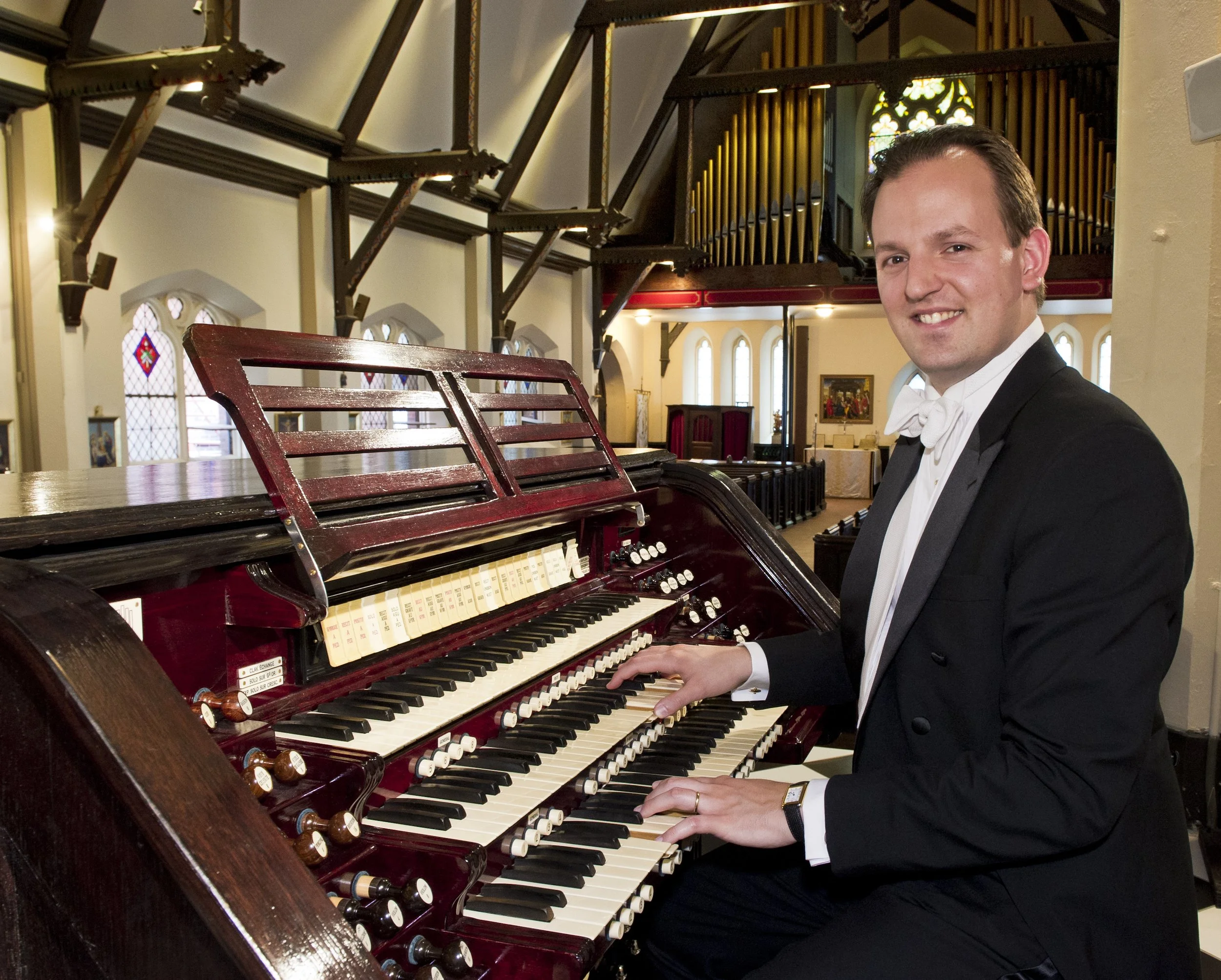In honor of the 200th anniversary of composer César Franck’s birth, the organist David Enlow presents an all-Franck recital November 17, 2022 at The Church of the Ascension in New York City. Enlow is uniquely poised for such a commemoration. His recording of the complete organ works by Franck (Pro Organo, 2012) received critical acclaim, with l'Orgue praising his “perfect technique, inventive, flexible, vigorous musicality.” In this insider interview, we speak to Enlow about Franck, his place in the organ repertoire, and what makes this recital so special.
How and when did you get interested in playing organ?
My grandmother (like a lot of grandmothers!) had a small electronic house organ, and when I was five years old, my idea of fun was to play Christmas carols when different family members would arrive – the only thing that has changed is that it’s now the arrival of a procession with incense and clergy!
What is Franck’s place/role as a composer in organ repertoire?
Franck is called the ‘Father of the Symphonic School’ but in many ways that is organ world jargon – Franck was a great Romantic, a spiritual and introspective composer with great personal burdens who created beautiful soundscapes on a colossal scale. Franck is a greater composer, in skill, inspiration, and craftsmanship, than the generations of organist-composers who followed, those who wrote principally for the organ. Franck should really be considered a singular figure in organ music, and if organists will treat his music as Romantic music, in the way pianists approach the accompaniment to the violin sonata, all will become clear.
What has drawn you to Cesar Franck’s compositions?
The combination of beautiful melodies, soulful, moving harmony, intelligent voice leading and counterpoint, and the grand scale of the pieces, all contributing to a dramatic arc in each piece.
What revelations did you have about Franck in the process of recording all of his organ music?
I found the pieces that are regarded as “lesser Franck” can polish up really well with a few thoughtful interpretative decisions. The ‘Final’ for example – it’s carnival music, but carnival does not mean unsophisticated, especially in 19th-century France.
The Grande Pièce Symphonique is criticized for being sprawling and incoherent, but if you had only heard goofy renderings, Berlioz’ works would face the same judgement. And of course, when I learned the works of his that I didn’t already know, it informed my existing interpretations of the works I had lived with since teenage years. I was able to notice more common patterns in Franck’s compositions, devices that he loves to use and harmonies that recur, which make us more aware of which are his most special moments.
What’s special about the organ at Church of the Ascension?
I’ve made much of the fact that it was made in France, as opposed to American organs built in a French style by Americans who have studied that style. It’s like the difference between champagne and a sparkling white wine from our country – the champagne doesn’t have to prove its French-ness, it just is. So, when I am drawing stops at this organ, everything I need to play Franck is present and ready to go. I don’t have to say “well, there is no French trompette, so I’ll make do with so-and-so.” That French-ness aside, this is also a beautiful instrument with the scale, color, and variety to make Franck’s music come alive. Not to discount our own native instruments -- that same level of scale, beauty, and color are also present in many American organs (otherwise I wouldn’t have recorded the Franck works at St Mary the Virgin in Times Square!)
What are one or two of the most important things that listeners should know about Franck and his work?
The most important thing to know is that this music comes from a time when spirituality and spectacle were aligned. Franck prays quietly, and then moments later, he summons the titanic resources of the pipe organ to rend the heavens. There is virtuosity, kindness, intimacy, grandeur – so much is contained and expressed in this music.

